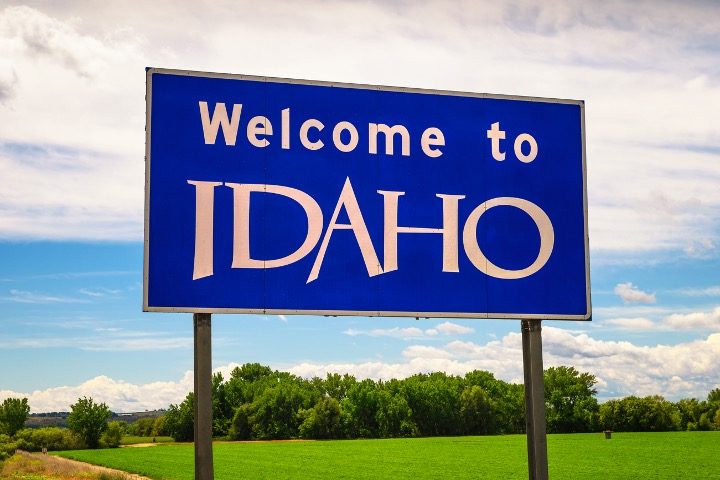
On Tuesday, voters in Crook County, Oregon, pledged to support efforts to adjust the border between Oregon and Idaho. The Greater Idaho movement looks to move a vast swath of eastern Oregon to Idaho, a state they believe more closely aligns with their conservative values.
Crook County, which is pretty much in the dead center of Oregon, voted 53 percent in favor of ballot measure 7-86, which asks the question: “Should Crook County represent that its citizens support efforts to move the Idaho state border to include Crook County?” It’s the thirteenth Oregon county to approve a move to Idaho.
“The voters of eastern Oregon have spoken loudly and clearly about their desire to see border talks move forward,” said Greater Idaho’s Executive Director Matt McCaw. “With this latest result in Crook County, there’s no excuse left for the Legislature and Governor to continue to ignore the people’s wishes. We call on the Governor, Speaker of the House, and Senate President to sit down with us and discuss next steps towards changing governance for eastern Oregonians, as well as for the legislature to begin holding hearings on what a potential border change will look like.”
The movement’s founder, Mike McCarter, a firearms instructor from La Pine, agreed: “For the last three years we’ve been going directly to voters and asking them what they want for their state government. What they’re telling us through these votes is that they want their leaders to move the border. In our system, the people are the ones in charge, and it’s time for the leaders representing them to follow through.”
Thus far, Governor Tina Kotek, a Democrat, has been dismissive of the movement. During a “Listening Tour” of the state last year, she referenced the movement:
I have met Oregonians who are frustrated, who want to be heard in Salem. And yes, some of them might have voted to support the measure to go to Idaho. But it’s like, “Look; I just want to be heard.” My job as Governor is to make sure people are heard. We’re not always going to agree on everything, but we need to have every perspective at the table.
Supporters of the movement believe that the margin wanting a move to Idaho would have been much larger were it not for an aggressive campaign by Portland-based groups urging a “no” vote. They also cried foul when a voter pamphlet describing the measure omitted certain arguments in favor of Greater Idaho. The Crook County clerk called the omissions “inadvertent.” Supporters also suspect the “no” movement does not report expenses to the state as they are required to.
Greater Idaho argues for representative government, claiming that the population centers on the Pacific have little in common with Oregon east of the Cascades.
“There is a way to get better governance for central and eastern Oregon,” said McCarter. “The current location of the Oregon/Idaho border was decided 165 years ago and is now outdated because it doesn’t match the location of the dividing line between the counties that prefer Idaho’s style of governance and counties that prefer Oregon’s style of governance.”
McCarter argues that Idaho’s Legislature is better equipped to deal with the more rural portions of Oregon, since it “is controlled by representatives from rural districts, who govern according to the concerns and priorities of rural counties.”
Although Greater Idaho remains a long-shot attempt, it’s good to see that a large segment of Oregon hasn’t simply given up and acquiesced to the far-more liberal portion of the state.
Idaho has already passed a memorial calling for the two states to begin talks on a possible border move. Thus far, they’ve been ignored by the Oregon Legislature.




